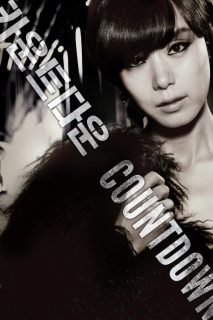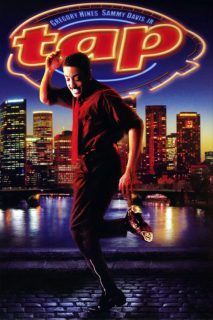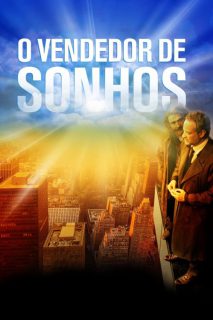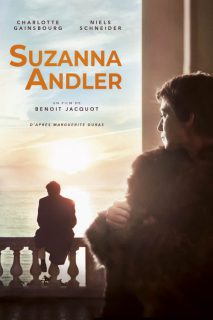
- Year: 1966
- Released: 01 Oct 1973
- Country: Soviet Union
- Adwords: 5 wins & 2 nominations
- IMDb: https://www.imdb.com/title/tt0060107/
- Rotten Tomatoes: https://www.rottentomatoes.com/m/andrei_rublev
- Available in: 720p, 1080p,
- Language: Russian, Italian, Tatar
- MPA Rating: R
- Genre: Biography, Drama, History
- Runtime: 205 min
- Writer: Andrey Konchalovskiy, Andrei Tarkovsky
- Director: Andrei Tarkovsky
- Cast: Anatoliy Solonitsyn, Ivan Lapikov, Nikolay Grinko
- Keywords: biography, rape, torture, teacher, artist,
 | 8.0/10 |
 | 95% – Critics |
 | 93% – Audience |
Andrei Rublev Storyline
The narrative film, divided into eight short stories, describes the period of turmoil in Russia at the beginning of the 15th century – from 1400 to 1423, as if seen through the eyes of the icon-monk Andrey Rublev. Separate short stories are little connected with each other, but they paint a general picture of medieval Russia, taking shape like a mosaic. The first small chapter shows the flight of a monk in a balloon. The main plot of the film is the departure of three monks from Andronikov Monastery: Daniil, Cyril and Andrey Rublev.
Andrei Rublev Play trailer
Andrei Rublev Photos



Andrei Rublev Torrents Download
| 720p | bluray | 893.19 MB | magnet:?xt=urn:btih:FB858376551D4FC4FC5A0B30EEB9DD4D09C9EC6A | |
| 1080p | bluray | 1.79 GB | magnet:?xt=urn:btih:FEBE82085BE090889614747258076E34CF192085 |
Andrei Rublev Subtitles Download
| English | subtitle Andrei.Rublev.1966.720p.BluRay.x264. | |
| Greek | subtitle Andrei.Rublev.1966.720p.BluRay.x264. |
Andrei Rublev Movie Reviews
Sign o’ the time
This film is impossible to understand at once. You need to watch it at least twice to be able to understand something. At first it seems to be an abstract art-house film about a painter in the 15th century, a film which talks about one artist’s plight towards his own ideals in difficult times, a philosophical/historical movie. And it may be the part of the great Tarkovsky’s intention.
Yet as you watch it twice you realize that it is also about religion. And about the ideal of man. The first scene clearly shows how man has always strived to reach towards something higher and how he often failed. This film is also about human nature, as always in Tarkovsky’s films. We follow Andrei through his dark and troubled times and adventures and of special importance is the Tatar attack part. Here we see Tarkovsky depict the everlasting hunger for power and the effect it can have on a man. The Russian prince betrays his own country and must stand trial to his own conscience after watching the town of Vladimir get destroyed by the horde of wild Tatars. The scene in the church is also of greater significance, as is the river scene with the pagan festival. They all show the conflict of religions and also moral values.
All said, the movie wouldn’t be as great without the last part, the one with the boy and the church bell. It illustrates the rebirth of Russia, Christian Russia and the final scene with the hoisting of the bell is one of the best scenes ever in film history. It shows us that faith is a feeble thing;if the bell didn’t work, everything would have ended differently. But thanks to a boy’s dedication and hard work, the bell tolled and the faith returned to the feeble heads and hearts of people.
The miraculous sudden appearance of color in the very end and the wonderful,solemn music really highlight the ultimate message of this film. Which is-art is sacred and immortal and transcends time.
At the time of its release, I believe only Tarkovsky himself and perhaps Andrey Kontchalovsky, the co-writer, knew just how great a masterpiece this film really is. It has taken the world some time to discover it, but it was worth it. With perfect acting, specially by Anatoli Solonytsin, perfect music, perfect screenplay and perfect direction, what else can I give it but a perfect 10?
Quite possibly the greatest Soviet film ever made
Russia have been responsible for some truly fine films, fantasy, animated or otherwise, but Andrei Rublev is truly something special. If there is a Soviet film more visually stunning, powerful, thought-provoking or emotionally profound than Andrei Rublev I’ve yet to see it. Sure, it may not appeal to all, there have been complaints about the animal torture/killings, the slow pacing and being perplexed by the symbolism but neither were problems for me(but if they are for anybody else that’s understandable).
Andrei Rublev looks absolutely stunning for starters, not just of any Soviet film but one of the most beautiful-looking films ever, every angle and frame is perfectly composed and with a hypnotic dream-like quality. The film also contains some of the most jaw-dropping and powerful symbolism of all of film, the casting of the bell was the standout with Rublev’s colour montage close behind, but the snow crucifixion, the battle and the balloon flight were also memorable images. Tarkovsky’s direction is just impeccable, so much so Andrei Rublev for me has to be one of the best-directed films there is. It’s very thoughtfully scripted, the hauntingly exquisite music score is not one to forget, the pacing while deliberately slow beguiles rather than bores or frustrates and the story is powerful, inspirational(in how Rublev struggled to overcome the hardships he faces) and poignant. Not only that, but Russian medieval life has never been captured more authentically on film to the extent that the viewer is drawn right into this world, nothing idealistic or overly stylised here, this is compellingly hard-hitting stuff and not in a sadistic way(to me). Anatoli Solonitsyn commands the screen in the title role with vigour and emotional intensity while Irina Tarkovskaya is like a Russian Giulietta Masina(a regular Federico Fellini leading lady if you’re not sure), and that’s meant in a good way.
Overall, majestic cinema(a phrase I very rarely use) and a film that film buffs must see if they haven’t already. A very easy 10/10. Bethany Cox
Ponderous albeit picturesque
ANDREI RUBLEV is another slow and ponderous movie from Russian director Andrei Tarkovsky, a man best known in the west for his lengthy sci-fi effort SOLARIS. This one’s even less accessible to the average cinema goer, featuring a dense plot loaded with religious content. The story is about a real life Russian painter of the 15th century, told in various illustrative chapters.
I admit that I found the subject matter of this film rather off-putting and the lengthy running time even more so. Tarkovsky’s film is picturesque and beautiful, yes, but not on the same level as Bergman, for example. I liked the way the story is broken up into chapters but much of the material seems deliberately pious and the mannered performances don’t help. The most dramatic part is a Tartar raid around the midway mark, but sadly this moment features some real-life animal cruelty that makes the experience rather repellent.



